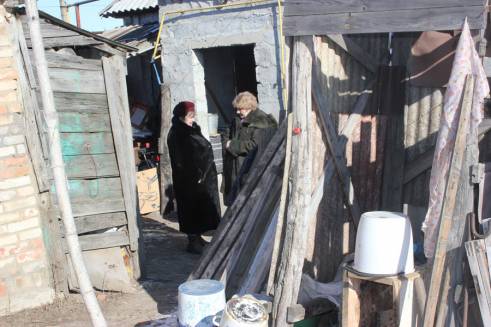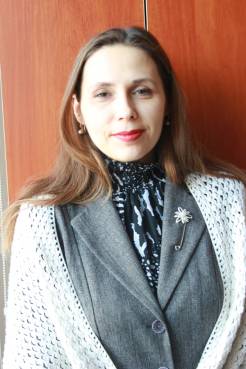By Sarah Gillam
While the world’s spotlight falls on the politics and fighting in eastern Ukraine, the human misery of war is evident in dormitories, disused huts and railway carriages, unseen and unheard, in pinewoods, towns and villages, with help difficult to access.
The population of older and disabled internally displaced persons have been particularly affected by this crisis and face specific challenges, contributing to their vulnerability.
Historically, studies of humanitarian programming show that these same groups are often neglected in the assessment, data collection, design and delivery of responses.
Assessing needs of older people
HelpAge is currently addressing this by supporting a needs assessment in the five Oblasts affected by the current conflict: Luhansk, Donetsk, Kharkhiv, Dnipropetrov, Zaporitz.
Internally displaced persons with and without specific needs have the same basic concerns – a lack of income, availability and quality of shelter, and access to basic healthcare, food and essential household items.
The difficulties faced by older people in addressing basic concerns and accessing adequate levels of assistance have more severe consequences for their health and living conditions than the general refugee population.
Lack of medication
The lack of drugs for non-communicable diseases such as hypertension and diabetes is a big issue, as we’ve seen in the Syrian crisis. The psychological impact on older people is also taking its toll.
Our Global AgeWatch Index shows that Ukraine already ranks low for older people’s health; 85 out of the 96 countries included.
Justin Derbyshire, HelpAge’s Director of Programmes, said: “We are scaling up our work in Ukraine to target the needs of older people, our teams on the ground are currently providing essential items, such as blankets, and psychosocial support.”
An estimated 29,000 people have fled west into Sloviansk, and of those, roughly 20,000 are older.
 “Since 31 January, we’ve been seeing up to 500 people a day coming in, and our resources are diminishing rapidly,” said Marina Oleinik, Sloviansk’s Director of Social Services in eastern Ukraine.
“Since 31 January, we’ve been seeing up to 500 people a day coming in, and our resources are diminishing rapidly,” said Marina Oleinik, Sloviansk’s Director of Social Services in eastern Ukraine.
Unable to cope with influx of refugees
She said they were barely able to cope with the influx and were offering people free railway tickets to travel west to relieve the pressure on services.
Heavy fighting prompted people to flee from the war-torn Donbas region last August but many older people came later as they were so reluctant to leave their homes.
Many have arrived in very psychologically poor condition, as a result of shelling and the displacement caused by conflict. Some have physical injuries, some are in very poor health. Many have run out of medicine and cannot afford to buy any more.
Many older people are alone
“Many older people have diabetes and hypertension. We need more drugs to cope with these conditions,” said Marina.
“A lot of older people are alone. They have no friends or relatives to look after them and they are very needy but we don’t have enough staff to support them.
“We need a lot of basic sanitation and hygiene items, diapers for adults, shampoo, soap, detergent, clothes, blankets, bedding. Most people are sending things for children. They don’t think about the needs of older people,” she said.
